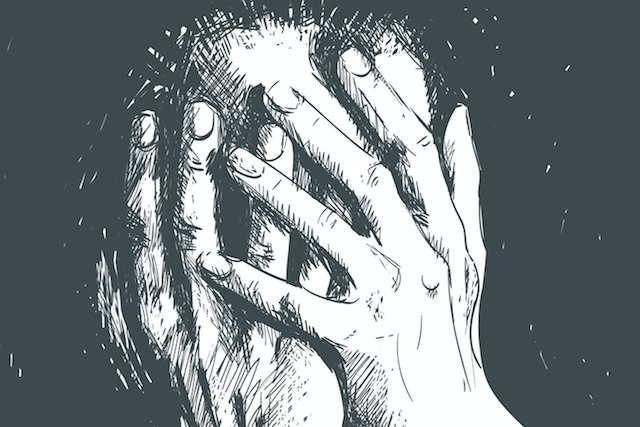What is shame?
According to Brene Brown, a world leading researcher of Shame…..Shame is the intensely painful feeling or experience of believing that we are flawed and therefore unworthy of love and belonging. “I am bad.” “I am a mess.” The focus is on self, not behaviour, with the result that we feel alone.
How we relate to shame
Shame, like all other emotions, is not chosen, it is an automatic response we have to a current or perceived situation(s). We can’t avoid shame, however due to our human tendency to classify emotions into ‘good’ and ‘bad’, we tend to fight or avoid this feeling, never ever winning the battle. Some of us may not even realise we are hooked by shame, but if we are stuck in the thinking pattern of ‘I am bad’ or ‘I am useless/worthless’ or some variation of this, we are experiencing shame.
Since we can’t avoid shame, we might as well learn to relate to it in a way that is healthy for us rather than unhealthy. Relating to shmae in a healthier way is my purpose behind writing this blog for you.
Healthy response to shame: We could choose to see shame as a teaching moment, teaching us humility and reminding us of our humanity, that we are not perfect. We can also choose to respond to shame as an opportunity to appreciate and admire the talents of others.
Unhealthy response to shame: We know we are in an unhealthy cycle of shame when feelings of resentment, envy, or inappropriate guild are showing up consistently. Or when we see ourself as worthless (subhuman) and negatively judge ourself and others on a constant basis.
How shame evolves
We aren’t born shaming ourselves or others!
Unhealthy shame stems from shaming experiences in childhood and throughout life. Experiences that sent us the message we were not good enough. For example, “You would look beautiful if only you lost some weight.”
Shame is felt when we don’t meet an arbitrary standard or expectation of ourselves based on what we have learnt is considered ‘good enough’ versus ‘not good enough’.
How to respond to shame to lessen its grip on you
Brene Brown writes in her book ‘Daring Greatly’ (p 67), Shame derives its power from being unspeakable….If we cultivate enough awareness about shame, to name it and speak to it, we’ve basically cut it off at the knees.”
Like other feelings, the key to loosening their hold over us is to explore it mindfully…..this means getting familiar with it, get curious, find out what it is about. NOT ignore or struggle with it.
TIP: Because it is a difficult emotion to be with, take it slow – like you are dipping your toes into the ocean for the first time.
BENEFITS: Approaching shame and other difficult feelings in an open and accepting way will help you develop resilience and self-knowledge. It will also improve your connections, help you development a sense of inner trust and lower your self-judgement and inappropriate guilt.
So let’s get curious:
Step 1. What do you feel shamed about?
We feel shame for a lot of things: our bodies, our actions, our feelings, our thoughts, our inactions; you name it, we can feel shamed about it. We even feel shame for experiencing shame!
I would like to invite you right now to think and, or write about a situation recently in which you experienced shame before you read on.
Tip: A situation where you experienced the thought ‘I am bad’, or variations of it.
Example (using the example from above of early life experience of body shaming): stepping on the scales and seeing my weight go up. ‘I am an ugly’. ‘I am fat’.
Step 2. What is shame telling you?
Every emotion has a function; however we are often too busy running away from it or struggling with it rather than stop and listen to it.
Unhealthy shame is often telling us that we haven’t met our arbitrary standard or expectation set from early life experiences that would mean we are ‘good enough’ at something.
I invite you to ask yourself the following questions before you read on:
What was the standard or expectation of ‘good enough’ for yourself in the situation you described above? What should you have done? What would have been ‘good enough’?
Example: What would have been good enough was losing weight. I should have exercised more, ate better, etc. I am only considered beautiful if I am at a certain weight.
Step 3. Re-evaluate your shame
I invite you now to evaluate the standard or expectation (identified previously) behind your shame feelings before you read on, by asking yourself the following questions:
Is the standard or expectation realistic? Do most people seem to hold this standard or expectation? What is the unrealistic aspect of it?
Example: It is unrealistic in some respects because I am human (i.e., not perfect) and there are many reasons why weight fluctuates, not just due to inactivity or unhealthy eating. And my beauty is not defined by my body! I am so much more than my body.
If it is unrealistic, revise it, What would be a more reasonable standard or expectation for yourself?This should be something you can actually meet more often thannot.

Example: A more realistic expectation is that my weight will go up sometimes and go down sometimes. It’s okay if I am not always active and eating healthy, I am only human. I can only do my best and improve where need be on my healthy behaviours (e.g. exercise, diet). My beauty is not assigned to my weight!
Step 4. Practice
Over the next week or so, I encourage you to work consciously to notice and let go of your unrealistic expectation or standard in your situation or experience and instead act from the revised expectation or standard in this situation. Overtime this conscious choice to change the narrative will help you let go of shame in this and other situations.
Example: When I get on the scales to go in with my realistic expectation of my weight fluctuating and using it as a learning opportunity to help me grow in the direction of my healthy behaviours, where I can. Also practice to look at my whole self, inside and out and note things I like and others like about me (e.g., my caring nature).
End note
Thank you for taking the time for yourself to explore your shame. If you are finding it hard to deal with your shame, I urge you to pursue psychological support. Unhealthy shame can undermine our psychological, social and physical health if left unaddressed. Any one of our psychologists, including myself will be able to assist you. Call to speak with our friendly receptionist team on 3822 9983 to make an appointment with one of us today.
Resources and References:
Brown, Brene, Ted Talk: Listening to Shame
Brown, Brene Books
The Gifts of Imperfection
I thought it was just me (but it isn’t)
Daring Greatly
Paterson, Randy J. (2003). Your Depression Map.Harbinger Publications.
Rockman, Patricia MD (September 2017). Tame Feelings of Shame with this 10-Minute practice. Mindful Magazine, Oct 2017.
Share this Post

